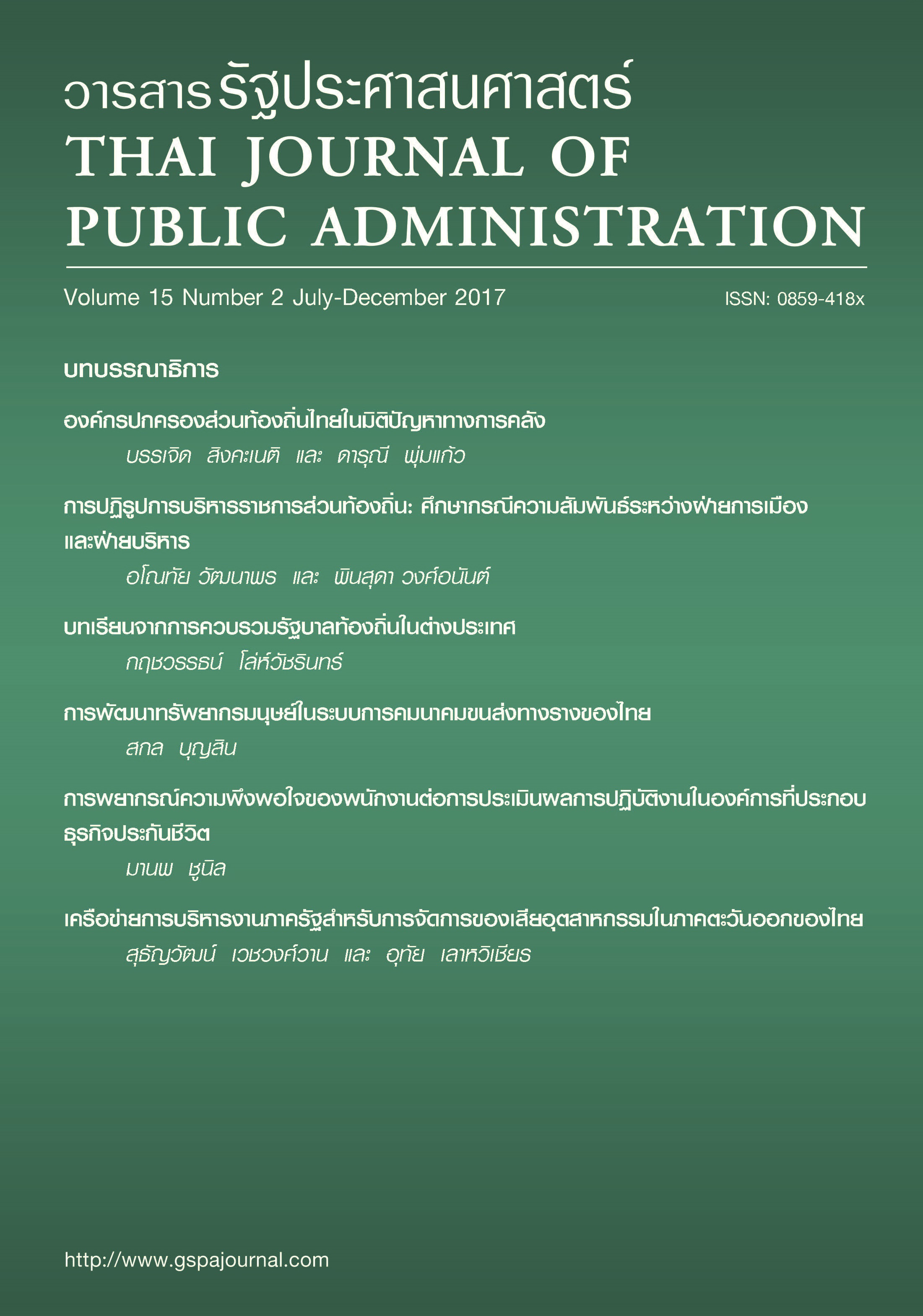Human Resource Development in the Thai Rapid Transit System
Keywords:
Human resource development, rapid transitAbstract
The objectives of the study were: 1) to study the human resource development process in the Thai Rapid Transit system; 2) to identify factors that affect human resource development in the Thai Rapid Transit system; 3) to determine which factors affect the human resource development the most, which have less of an effect, and which have no relationship; and 4) to test a causal model of human resource development and analyze the direct and indirect influences on human resource development. A quantitative research approach was employed and a sample size calculated from the total of 3,863 BTS, MRT and Airport Link employees using simple random sampling, yielding a sample of 390 persons. The results indicated that four factors could be used to predict human resource development at a significance level of p ≤ .05. The factors which positively affect the process, from the most significant to the least significant, are: learning style, top management support, lifetime learning, and motivation to learn. Shortage of skilled workers, technological advances, and modern day life-style complexity did not show significant correlation with human resource development and could not be used to explain the process. The empirical data were shown to be consistent with the hypothesized causal model of human resource development.



